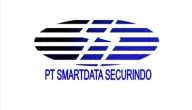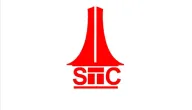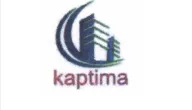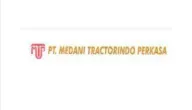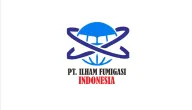
Welcome to
G-System International
G-System International
ISO INTERNATIONAL MANAGEMENT SYSTEM CERTIFICATION
WELCOME G-SYSTEM INTERNATIONAL
INTERNATIONAL ASSESSMENT AND CERTIFICATION
G-System Certification, provides management system assessment and certification services for organizations. In accordance with the ISO 17021 Management System Certification Body standard.
- International Accreditation Board for Certification Bodies (UK) - IAB-CB
- Registered Management Certification System (UK) - RIM-CS
We are committed to helping our clients maximize the benefits of their management systems and through continuous development and international expansion.
- International Accreditation Board for Certification Bodies (UK) - IAB-CB
- Registered Management Certification System (UK) - RIM-CS
We are committed to helping our clients maximize the benefits of their management systems and through continuous development and international expansion.
Do you need certification?
we are here to help you
Contact Uswe are here to help you
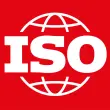
What is ISO?
The International Organization for Standardization or commonly abbreviated as ISO is an international standard body consisting of representatives from the national standardization bodies of each country.
Because the abbreviations of each language are different (IOS in English and OIN in French), the founders used the ISO abbreviation, (taken from Greek: 'ISOS' which means Equality) Founded on February 23, 1947, ISO set the standard -the world's industrial and commercial standards.
ISO is an international non-profit institution, initially formed to create and introduce international standardization for anything.
Standards that we are familiar with include standard types of photographic films, phone card sizes, Bank ATM cards, paper sizes and thickness and others.
About ISO
ISO is an organization outside the government (Non-Government Organization / NGO). The mission of ISO is to support the development of standardization and other related activities in the hope of helping international trade, and also to help develop global cooperation in the fields of science, technology and economic activities.
The main activity of ISO is to produce international agreements which are then published as international standards.
In setting a standard they invited representatives from 130 countries to sit on the Technical Committee (TC), Sub-Committee (SC) and Working Group (WG). ISO participants include one national standard body from each country and large companies.
Why Are Standards Important?
Standards make a very large and positive contribution to most aspects of our lives. Standards ensure the desired characteristics of products and services such as quality, environmental friendliness, safety, reliability, efficiency, exchange, and at an economical cost.
When products and services meet our expectations, we tend to take these for granted and are not aware of the role of standards. When the product turns out to be of poor quality, unsuitable, incompatible with the equipment we already have, unreliable or dangerous, it is necessary to form a standard.
When products, systems, machines and devices work properly and safely, it is because the product meets the standards. And the organization responsible for thousands of useful standards in the world is ISO.
Why is Conformity Assessment Important?
'Conformity Assessment' means checking that a product, material, service, system, process or person measures up to the specifications of a relevant or specific standard.
Today, many products require testing to meet specifications or comply with safety, or other regulations before they can be sold freely on the market. ISO guidelines and standards for conformity assessment constitute an international consensus on best practice.
Their use contributes to the consistency of conformity assessments throughout the world and facilitates trade.
What is the Meaning of "International Standardization"
When most products or services in a particular business or industry sector conform to International Standards, then the state of the industry standardization becomes broad.
The economic stakeholders concerned agree on the specifications and criteria that will be applied consistently in the classification of materials, in the manufacture and supply of products, in testing and analysis, in terminology and in the provision of services.
In this way, International Standards provide a reference framework, or common technology language, between suppliers and customers facilitating trade and technology transfer.
The International Organization for Standardization or commonly abbreviated as ISO is an international standard body consisting of representatives from the national standardization bodies of each country.
Because the abbreviations of each language are different (IOS in English and OIN in French), the founders used the ISO abbreviation, (taken from Greek: 'ISOS' which means Equality) Founded on February 23, 1947, ISO set the standard -the world's industrial and commercial standards.
ISO is an international non-profit institution, initially formed to create and introduce international standardization for anything.
Standards that we are familiar with include standard types of photographic films, phone card sizes, Bank ATM cards, paper sizes and thickness and others.
About ISO
ISO is an organization outside the government (Non-Government Organization / NGO). The mission of ISO is to support the development of standardization and other related activities in the hope of helping international trade, and also to help develop global cooperation in the fields of science, technology and economic activities.
The main activity of ISO is to produce international agreements which are then published as international standards.
In setting a standard they invited representatives from 130 countries to sit on the Technical Committee (TC), Sub-Committee (SC) and Working Group (WG). ISO participants include one national standard body from each country and large companies.
Why Are Standards Important?
Standards make a very large and positive contribution to most aspects of our lives. Standards ensure the desired characteristics of products and services such as quality, environmental friendliness, safety, reliability, efficiency, exchange, and at an economical cost.
When products and services meet our expectations, we tend to take these for granted and are not aware of the role of standards. When the product turns out to be of poor quality, unsuitable, incompatible with the equipment we already have, unreliable or dangerous, it is necessary to form a standard.
When products, systems, machines and devices work properly and safely, it is because the product meets the standards. And the organization responsible for thousands of useful standards in the world is ISO.
Why is Conformity Assessment Important?
'Conformity Assessment' means checking that a product, material, service, system, process or person measures up to the specifications of a relevant or specific standard.
Today, many products require testing to meet specifications or comply with safety, or other regulations before they can be sold freely on the market. ISO guidelines and standards for conformity assessment constitute an international consensus on best practice.
Their use contributes to the consistency of conformity assessments throughout the world and facilitates trade.
What is the Meaning of "International Standardization"
When most products or services in a particular business or industry sector conform to International Standards, then the state of the industry standardization becomes broad.
The economic stakeholders concerned agree on the specifications and criteria that will be applied consistently in the classification of materials, in the manufacture and supply of products, in testing and analysis, in terminology and in the provision of services.
In this way, International Standards provide a reference framework, or common technology language, between suppliers and customers facilitating trade and technology transfer.
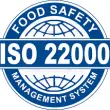
Failures in the food supply can be dangerous and costly. ISO has developed the ISO 22000 standard for food safety management system certification. This standard is intended to provide safety by ensuring that there are no weak links in the food supply chain, and to achieve international harmonization in the area of food safety standards. It will also provide a tool for implementing HACCP through the food supply chain as this standard is suitable for all stakeholders in the food supply chain.
ISO 22000 certification will enable an organization to demonstrate its ability to control hazards to food safety to provide a final product that is consistently safe and meets customer requirements as well as applicable food safety regulations Third Party Inspection Services Inspection is needed to keep a check on the continuity of organizational functions and play a role major in measuring products against established standards. At the same time, product verification / audits or on-site surveys provide a precise idea of the current situation and actual conformance conditions. It also provides clues on areas that need attention for improvement. We provide third party inspection services and offer the best solutions at the same time. We provide services designed for every industry and offer services to clients worldwide with a local approach. We carry out strategic programs and stringent management controls to help your business grow by meeting inspection requirements, safeguarding your ultimate achievement and our customers' expectations.
ISO 22000 certification will enable an organization to demonstrate its ability to control hazards to food safety to provide a final product that is consistently safe and meets customer requirements as well as applicable food safety regulations.
Third Party Inspection Services
nspection is needed to keep in check the continuity of organizational functions and to play a major role in measuring products against established standards. At the same time, product verification / audits or on-site surveys provide a precise idea of the current situation and actual conformance conditions. It also provides clues on areas that need attention for improvement. We provide third party inspection services and offer the best solutions at the same time. We provide services designed for every industry and offer services to clients worldwide with a local approach. We carry out strategic programs and stringent management controls to help your business grow by meeting inspection requirements, safeguarding your ultimate achievement and our customers' expectations.
ISO 22000 certification will enable an organization to demonstrate its ability to control hazards to food safety to provide a final product that is consistently safe and meets customer requirements as well as applicable food safety regulations Third Party Inspection Services Inspection is needed to keep a check on the continuity of organizational functions and play a role major in measuring products against established standards. At the same time, product verification / audits or on-site surveys provide a precise idea of the current situation and actual conformance conditions. It also provides clues on areas that need attention for improvement. We provide third party inspection services and offer the best solutions at the same time. We provide services designed for every industry and offer services to clients worldwide with a local approach. We carry out strategic programs and stringent management controls to help your business grow by meeting inspection requirements, safeguarding your ultimate achievement and our customers' expectations.
ISO 22000 certification will enable an organization to demonstrate its ability to control hazards to food safety to provide a final product that is consistently safe and meets customer requirements as well as applicable food safety regulations.
Third Party Inspection Services
nspection is needed to keep in check the continuity of organizational functions and to play a major role in measuring products against established standards. At the same time, product verification / audits or on-site surveys provide a precise idea of the current situation and actual conformance conditions. It also provides clues on areas that need attention for improvement. We provide third party inspection services and offer the best solutions at the same time. We provide services designed for every industry and offer services to clients worldwide with a local approach. We carry out strategic programs and stringent management controls to help your business grow by meeting inspection requirements, safeguarding your ultimate achievement and our customers' expectations.
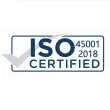
ISO 45001 is a new international standard for occupational health and safety management (K3 / OH&S), which is a substitute for the OHSAS 18001 standard. So what's the difference between the two? ISO 45001 was designed by the ISO project Committee and was published last March of this year 2018. Some of the main differences between ISO 45001 and OHSAS 18001 are as follows:
The first difference is related to structure. ISO 45001 is based on ISO Guide 83 ("Annex SL") which establishes general high-level structures, texts and terms and general definitions for management systems (eg ISO 9001, ISO 14001, etc.). This structure aims to facilitate the process of implementing and integrating several management systems in a harmonious, structured and efficient manner.
In addition, in the new standard there is a strong focus on the "organizational context". At ISO 45001, organizations should not only consider what OSH issues directly affect them, but also involve the wider community and how their work can also impact the surrounding community.
At ISO 45001, organizations should not only consider what OSH issues directly affect them, but also involve the wider community and how their work can also impact the surrounding community.
Some organizations that use OHSAS 18001 delegate work health and safety responsibilities to OSH managers, rather than integrating them into the organization's operating system. ISO 45001 requires the incorporation of aspects of occupational health and safety in the overall management system of the organization, thereby encouraging top management to have a strong leadership role in the OSH management system.
ISO 45001 focuses on identifying and controlling risks rather than hazards, as required in OHSAS 18001. ISO 45001 requires organizations to take into account how suppliers and contractors manage their risks. In ISO 45001 some basic concepts have changed, such as risk, workers and the workplace. There are also new definition terms such as: monitoring, measurement, effectiveness, performance and OSH processes.
Some organizations that use OHSAS 18001 delegate work health and safety responsibilities to OSH managers, rather than integrating them into the organization's operating system. ISO 45001 requires the incorporation of occupational health and safety aspects into the overall management system of the organization, thereby encouraging top management to have a strong leadership role in the OSH management system.
Despite some changes, the overall objective of ISO 45001 remains the same as OHSAS 18001, which is to reduce unacceptable risks and ensure the safety and welfare of all people involved in organizational activities.
ISO 45001 was approved for publication in January and has undergone a publication process in March 2018. Thus organizations with occupational health and safety management systems must upgrade their management systems and their certificates following the ISO 45001 standard within the next 3 years.
The first difference is related to structure. ISO 45001 is based on ISO Guide 83 ("Annex SL") which establishes general high-level structures, texts and terms and general definitions for management systems (eg ISO 9001, ISO 14001, etc.). This structure aims to facilitate the process of implementing and integrating several management systems in a harmonious, structured and efficient manner.
In addition, in the new standard there is a strong focus on the "organizational context". At ISO 45001, organizations should not only consider what OSH issues directly affect them, but also involve the wider community and how their work can also impact the surrounding community.
At ISO 45001, organizations should not only consider what OSH issues directly affect them, but also involve the wider community and how their work can also impact the surrounding community.
Some organizations that use OHSAS 18001 delegate work health and safety responsibilities to OSH managers, rather than integrating them into the organization's operating system. ISO 45001 requires the incorporation of aspects of occupational health and safety in the overall management system of the organization, thereby encouraging top management to have a strong leadership role in the OSH management system.
ISO 45001 focuses on identifying and controlling risks rather than hazards, as required in OHSAS 18001. ISO 45001 requires organizations to take into account how suppliers and contractors manage their risks. In ISO 45001 some basic concepts have changed, such as risk, workers and the workplace. There are also new definition terms such as: monitoring, measurement, effectiveness, performance and OSH processes.
Some organizations that use OHSAS 18001 delegate work health and safety responsibilities to OSH managers, rather than integrating them into the organization's operating system. ISO 45001 requires the incorporation of occupational health and safety aspects into the overall management system of the organization, thereby encouraging top management to have a strong leadership role in the OSH management system.
Despite some changes, the overall objective of ISO 45001 remains the same as OHSAS 18001, which is to reduce unacceptable risks and ensure the safety and welfare of all people involved in organizational activities.
ISO 45001 was approved for publication in January and has undergone a publication process in March 2018. Thus organizations with occupational health and safety management systems must upgrade their management systems and their certificates following the ISO 45001 standard within the next 3 years.
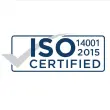
ISO 14001 is an international standard on environmental management systems that helps organizations to identify, prioritize and manage environmental risks as part of normal business practices.
This standard requires that organizations commit to pollution prevention and continuous improvement as part of the normal management cycle.
ISO 14001 certification ensures compliance with your environmental policies, both internally and externally, and demonstrates a commitment to provide all the resources needed to control and reduce the environmental impact of the organization's products, services and activities.
This standard requires that organizations commit to pollution prevention and continuous improvement as part of the normal management cycle.
ISO 14001 certification ensures compliance with your environmental policies, both internally and externally, and demonstrates a commitment to provide all the resources needed to control and reduce the environmental impact of the organization's products, services and activities.


